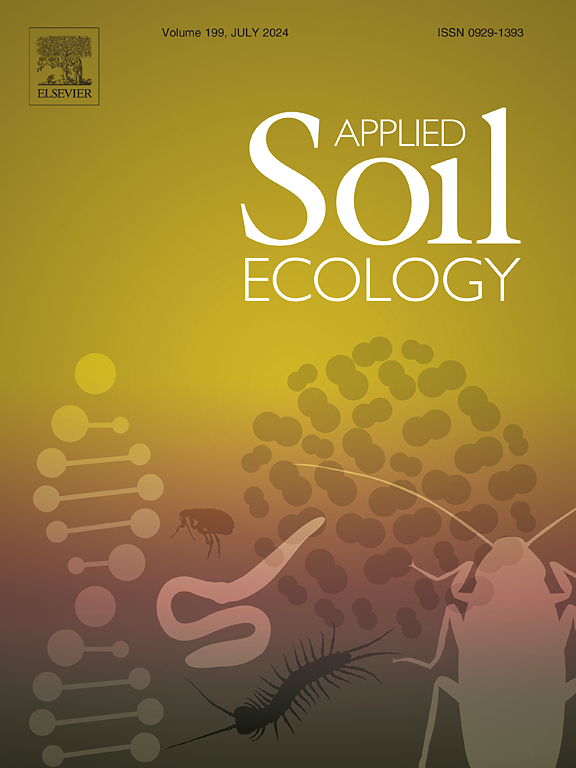16S rRNA sequencing reveals synergistic effects of silkworm feces and earthworms on soil microbial diversity and resilience under elevated temperatures
IF 4.8
2区 农林科学
Q1 SOIL SCIENCE
引用次数: 0
Abstract
Soil microbial communities are fundamental to ecosystem functioning and agricultural productivity, yet they are vulnerable to environmental stressors such as elevated temperatures. This study investigates the synergistic effects of silkworm feces and earthworms on soil microbial diversity, community structure, and functional resilience in nutrient-poor soils under varying temperature regimes. Utilizing 16S rRNA gene sequencing, we comprehensively profiled microbial communities across treatments involving silkworm feces, earthworms, and their combination at temperatures of 25 °C, 30 °C, and 35 °C. Our findings reveal that the application of silkworm feces and earthworms significantly enhances microbial diversity and alters community composition, promoting taxa associated with nutrient cycling and organic matter decomposition across temperature regimes. Elevated temperatures induced shifts in microbial assemblages; however, the presence of both amendments mitigated these effects by fostering functional redundancy and maintaining key ecosystem processes. Notably, the combined treatment supported the persistence of beneficial microbes such as Rhodococcus, which are crucial for soil health but declined under heat stress when amendments were absent. These results demonstrate that integrating silkworm feces and earthworms into agricultural practices can bolster soil microbiome resilience against climate-induced temperature fluctuations, thereby supporting sustainable soil management and enhancing crop productivity. This study provides critical insights into the development of biotic strategies for maintaining soil ecosystem services in the face of global climate change.
求助全文
约1分钟内获得全文
求助全文
来源期刊

Applied Soil Ecology
农林科学-土壤科学
CiteScore
9.70
自引率
4.20%
发文量
363
审稿时长
5.3 months
期刊介绍:
Applied Soil Ecology addresses the role of soil organisms and their interactions in relation to: sustainability and productivity, nutrient cycling and other soil processes, the maintenance of soil functions, the impact of human activities on soil ecosystems and bio(techno)logical control of soil-inhabiting pests, diseases and weeds.
 求助内容:
求助内容: 应助结果提醒方式:
应助结果提醒方式:


